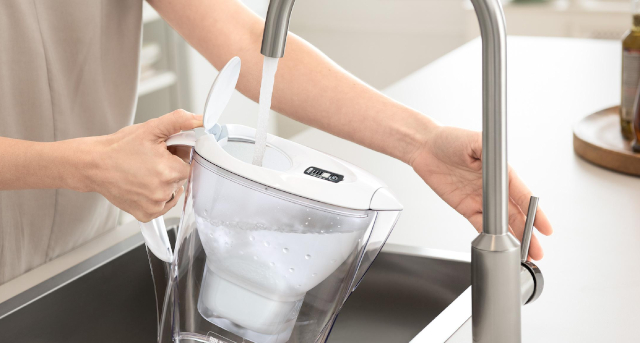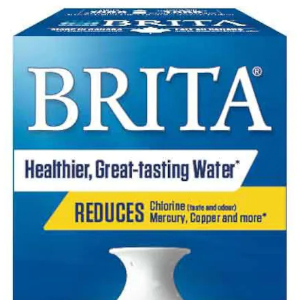This has been a big year for lawsuits against food makers, Fast Food resto chains and others across the food scene. Now, even water is getting a failing grade on health considerations. A California man is suing Brita over its filtration claims…
 Filling a Brita water filtration jug.
Filling a Brita water filtration jug.
Nicholas Brown of Los Angeles filed a class-action suit in the Superior Court of the State of California County of Los Angeles last month. Brown claims Brita, “falsely and misleadingly markets, advertises, labels and packages,” its products. At issue is the ability of Brita’s water filters to remove the ‘contaminants it lists on its label: “Reduces 30 contaminants including Lead, Benzene, Mercury, Cadmium, Asbestos, and More.”
The suit seeks a jury trial to force Brita to change its marketing language to more accurately reflect what its filters do and don’t remove. The suit also seeks monetary compensation for those who purchased Brita products.
The suit
Brown’s Statement of Claim alleges: “Unfortunately, the Products are not nearly as effective as Defendant deliberately leads people to believe, causing consumers to overpay millions and forego more effective alternatives,” the complaint states.
It specifically states: “[Brita filters] fail to remove or reduce […] some of the highest risk, notorious, or prevalent contaminants from drinking water,” including ‘forever chemicals‘, commonly known as PFSAs.”
“In this way, Defendant has not only bilked millions of dollars from consumers in ill-gotten gains, but Defendant has put the health and welfare of millions of consumers and their families at risk.”
Brown’s lawyers add
In a news release received by TODAY.com included the following statements from Clarkson Law Firm managing partner Ryan Clarkson and partner Katherine Bruce:
“Everyone, no matter who they are or where they live, has a fundamental right to clean and safe drinking water,” said Clarkson. “Lulling customers into a false sense of security about the quality and safety of their water is not only immoral, it’s illegal.”
“These chemicals pose an enormous threat to our health and our future,” said Bruce. “Brita knows the health implications at stake, but has actively chosen to deprive customers of the information they need to keep themselves and their families safe. With this lawsuit, we want to hold them accountable.”
Brita responds
A Brita spokesperson released a statement in response to the suite, which it calls ‘meritless’ and ‘baseless’:
“Brita takes the transparency of the water filtration options we offer seriously. Our products include a standard filtration option that improves taste and odor of tap water and is certified to reduce identified contaminants as communicated.” the statement says. “[O]ur products reduce specific contaminants to at-or-below maximum allowable levels that are set by the EPA or other applicable regulatory authorities, under specified conditions.”
“The recent lawsuit does not challenge the efficacy of Brita’s filters against these certification standards. Instead, the meritless suit proposes that Brita list every contaminant that its filters do not remove. In fact, there is no such legal requirement or industry standard.”
My Take
A key claim in Brown’s suit states the Brita pitcher he purchased, “…does not remove or reduce common contaminants […] to below lab detectable limits.”
The trouble for him seems to be, as Brita states, that its filters do remove or reduce contaminants stated on the label to within legal EPA-set limits.
It seems that Brown’s lawyers are not all that confident that the strictly legal side of their claim will convince jurors to find for their client. In fact, the key statements of support in their news release are entirely based on emotional expressions of moral outrage. Not legal arguments.
But… If I was on that jury, I might have a hard time deciding whether Brita is guilty of making false or misleading marketing claims.
~ Maggie J.

